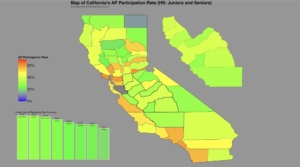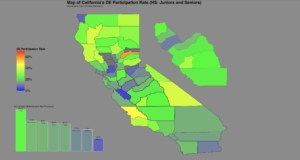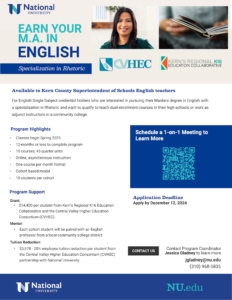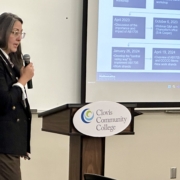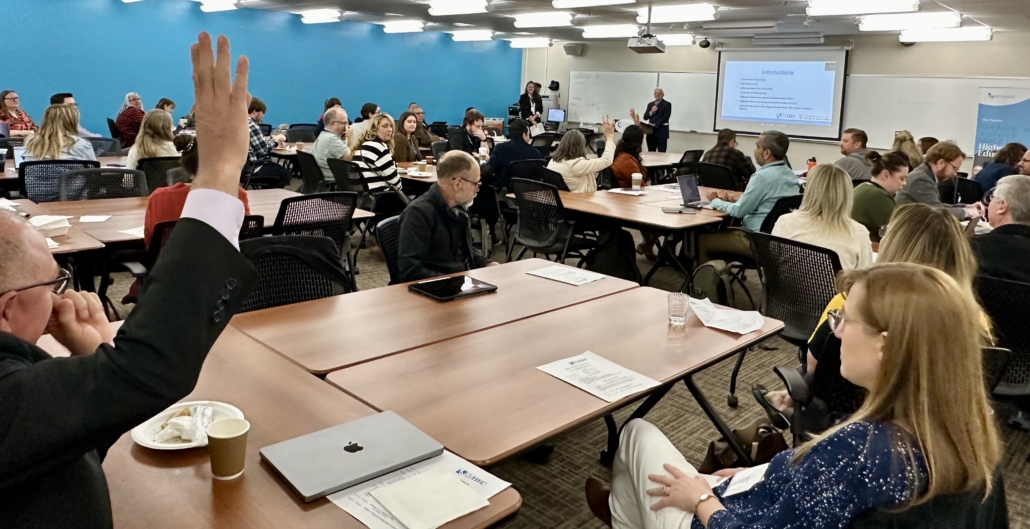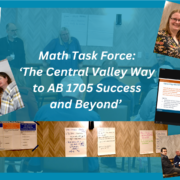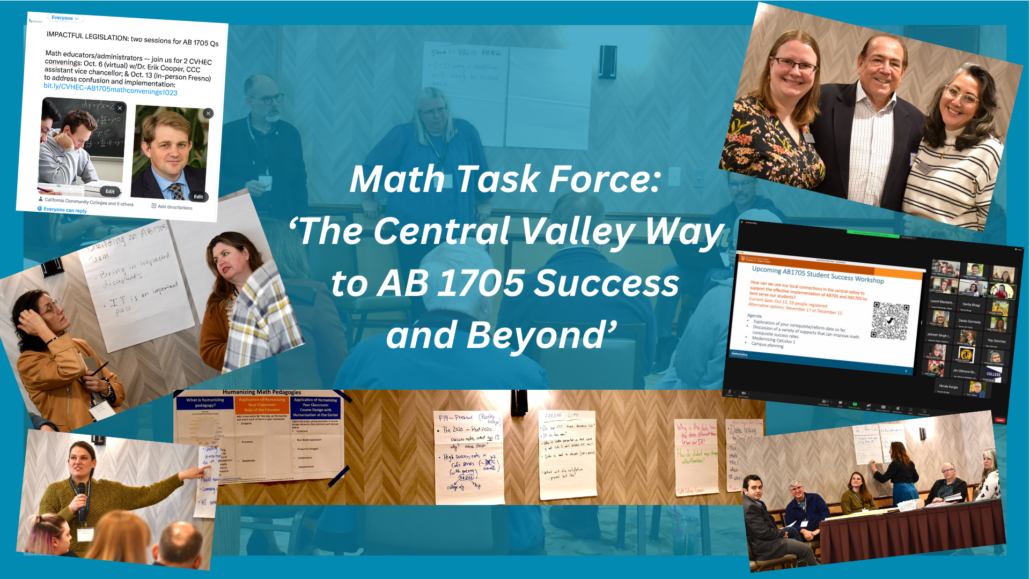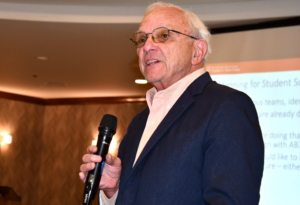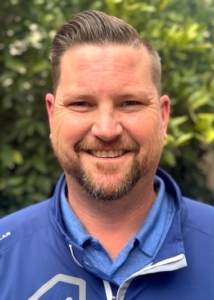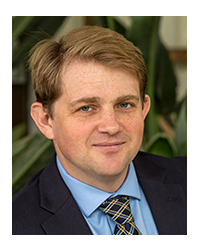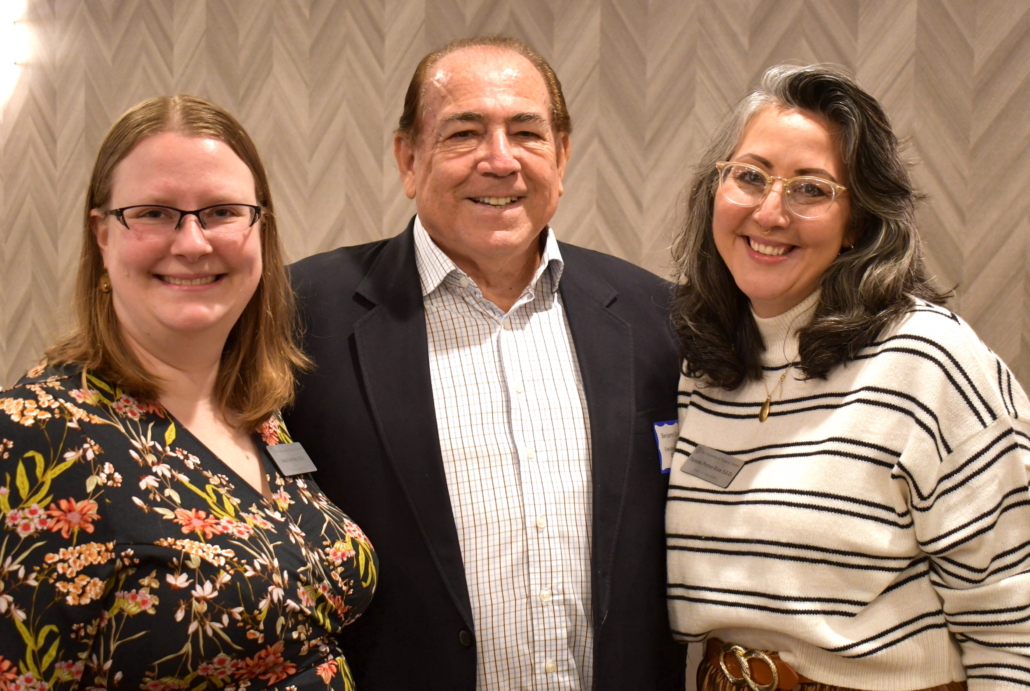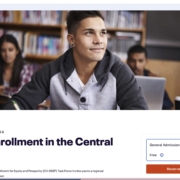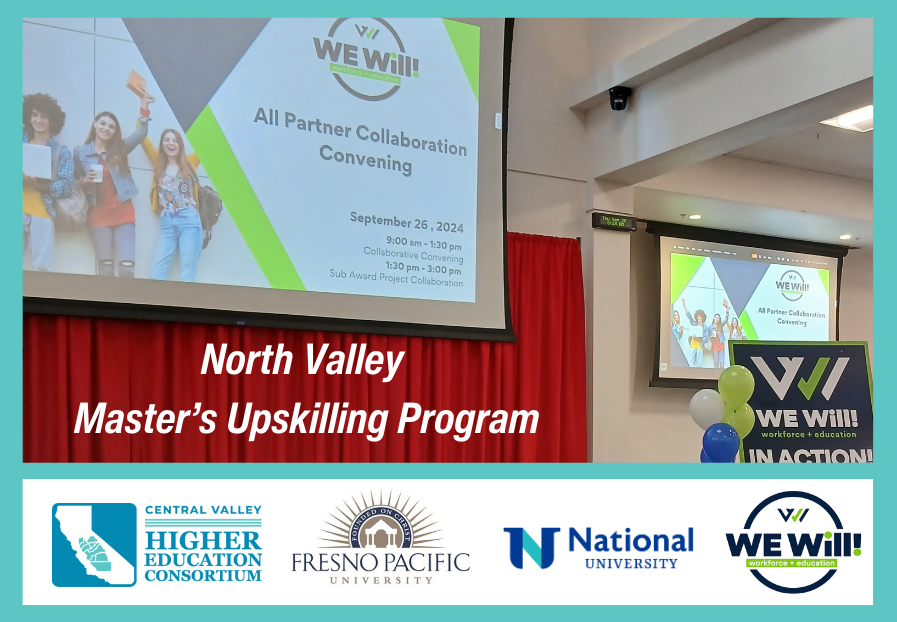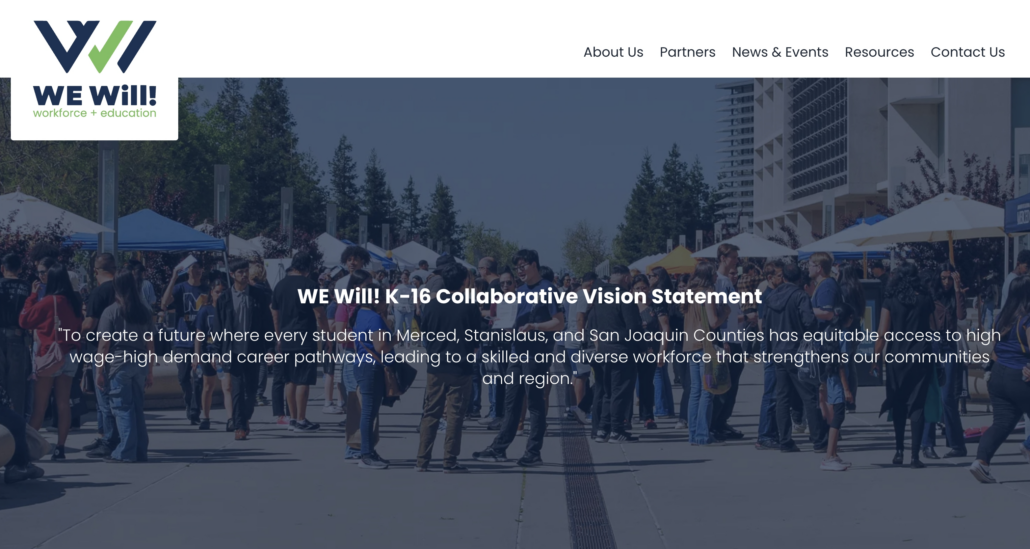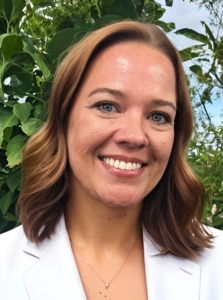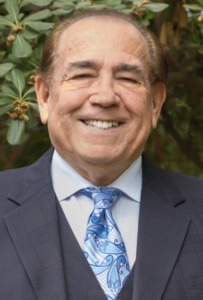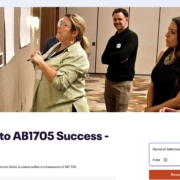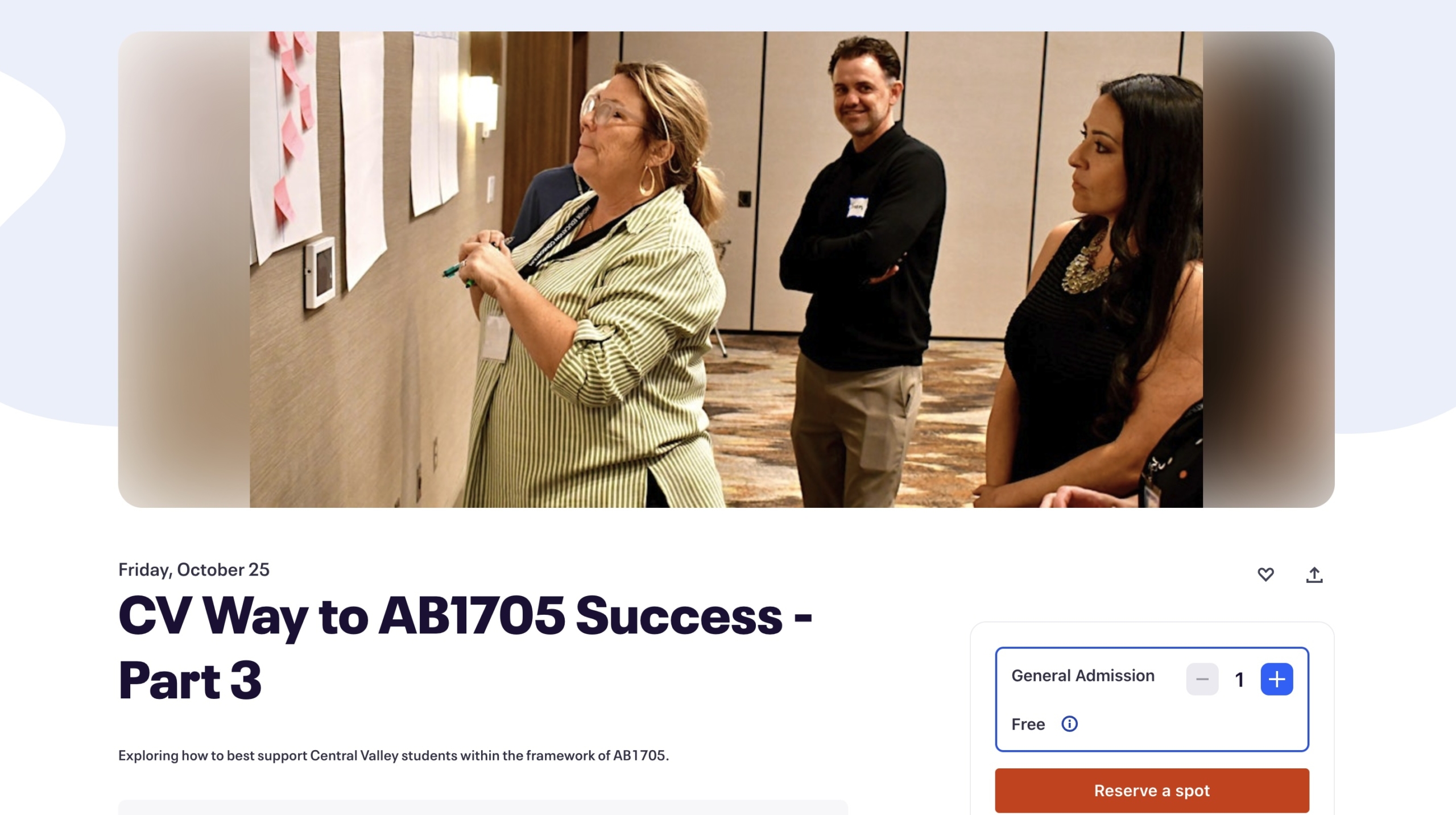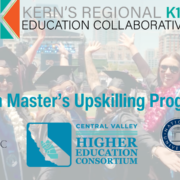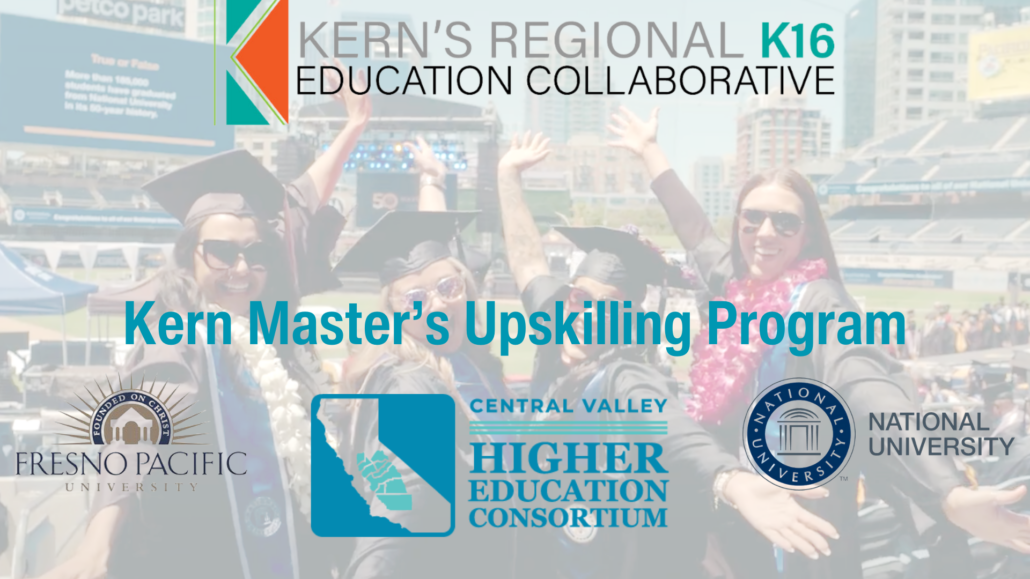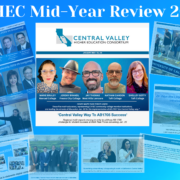UC Merced project to improve college readiness data completes first phase
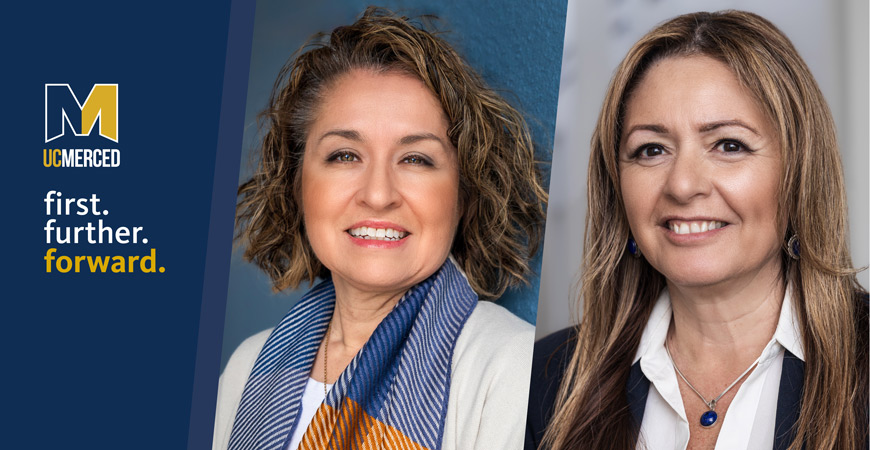
UC Merced Interim Associate Vice Chancellor Orquidea Largo, left, and Professor Zenaida Aguirre-Muñoz lead research efforts on the “Advancing Educational Opportunities in California” project.
‘Despite significant growth in dual enrollment
participation rates in Central Valley, disparities persist ’
BY TOM URIBES
CVHEC Communications Coordinator
A University of California, Merced research team has completed the first phase of a two-year project project to create a deeper and more comprehensive understanding of college readiness among high-school students in the San Joaquin Valley, particularly those from underrepresented and socioeconomically diverse backgrounds.
The UC Merced Advancing Educational Opportunity in the Central Valley Project, announced earlier this year and led by Professor Zenaida Aguirre-Muñoz, principal investigator, focuses on surveying and analyzing college-readiness data, policies and infrastructure to determine how certain academic pathways and access disparities impact student populations — including Latinx, Black, Native American and English learners — and their preparedness for higher education.
UC Merced is a member of the Central Valley higher education Consortium that is made up 28 colleges and universities in the valley’s 10-county region.
In the “What the CV-Hec is Happening Blog” for this November issue of the CVHEC e-newsletter, Aguirre-Muñoz writes that in October, the research team completed the first phase of the project with an in-depth analysis of student and districtwide data on dual enrollment and Advanced Placement (AP) access and participation for key demographic groups in the Central Valley.
“The analysis highlights significant growth in dual enrollment participation rates across the Central Valley, with a rise from 3.3 percent in 2015 to 11.1 percent in 2021 among 11th and 12th graders,” she blogs. “This rate has now surpassed participation levels in other parts of the state, reflecting a local commitment to increasing college readiness opportunities for students. However, disparities persist.
The project is a collaboration between the UC Merced, Language, Learning, and Teaching Lab led by Aguirre-Muñoz and the UC Merced Center for Educational Partnerships led by Dr. Orquidea Largo, CEP interim associate vice chancellor and chief outreach officer who is the project’s co-principal investigator. It is funded by the Bill & Melinda Gates Foundation whose $500,000 grant first announced in February is the foundation’s first award to UC Merced.
“High-school students in this region, on average, encounter more barriers in accessing dual enrollment or AP (Advanced Placement) courses compared to students in other areas of California,” explained Aguirre-Muñoz when the grant was first announced last spring.
“This grant funding will contribute valuable insights and practical solutions that can shape state policies aimed at addressing the persistent disparities in equity and academic achievement, which hinder the upward mobility of underrepresented, minority students as they progress through high school.”
In a supplemental summary of the first phase she provided this month for the blog, Aguirre-Muñoz said the project’s findings will support state policy makers and regional leadership in continuously improving evidence-based pathways for accelerating college readiness rates in the Central Valley’s most vulnerable student populations.
She said this first phase summarizes key findings from the Strategic Landscape Analysis that provides descriptive detail of both dual enrollment and advanced placement (AP) availability and participation for key demographic groups in the Central Valley, adding that “a mixed effects hierarchical modeling analysis also was completed to identify critical factors affecting dual enrollment access in the Central Valley, focusing on geographic, socioeconomic and demographic variables.”
In the summary, Aguirre-Muñoz broke down these highlights from the project’s Strategic Landscape Analysis:
Dual Enrollment Growth: Between 2015-2021, dual enrollment rates in the Central Valley increased significantly, surpassing non-CV rates by 2020-2021. Although schools in the CV now offer dual enrollment at rates comparable to other parts of California, AP course access remains lower, with the gap widening over time.
Racial/Ethnic Disparities: While dual enrollment participation has increased, underrepresented minority (URM) students, especially Black and Latinx students, continue to enroll at lower rates than their White and Asian/Pacific Islander peers. This disparity persists even in schools that offer dual enrollment, suggesting that simply increasing availability does not fully address access inequities.
AP Participation: Central Valley schools lag behind the state in AP course offerings and student participation. For example, AP enrollment among Asian/Pacific Islander students in the region decreased slightly, resulting in a narrower but still present racial/ethnic gap.
“The analysis indicates the need for targeted interventions, particularly in rural and high-poverty schools, to further bridge these educational gaps and enhance college readiness across the Central Valley,” she said.
Aguirre-Muñoz’s summary also reports that the first phase presents this analysis of Central Valley dual enrollment availability:
Model Structure — three models were developed to examine dual enrollment factors, gradually incorporating geographic (e.g., location and urbanicity), socioeconomic (e.g., poverty rates), and demographic (e.g., race and ethnicity) elements.
Significant Findings:
- Regional Trends: Schools in the Central Valley are generally less likely to offer dual enrollment than other regions, though local initiatives have improved access over time.
- Urban-Rural Divide: Urban schools have a higher likelihood of offering dual enrollment than rural schools.
- Socioeconomic Factors: Schools with high Black student populations showed an increase in dual enrollment availability, while high-poverty and high-URM schools faced more access challenges.
Interaction Effects — notable interactions include:
- Central Valley and Year: Positive trends over time indicate regional improvements and positive impact of local efforts to increase access.
- URM and Poverty: High-URM, high-poverty schools saw improved dual enrollment access under certain conditions, suggesting that targeted support may benefit these schools.
Model Fit: Model 3, incorporating interaction effects, was the strongest predictor of dual enrollment variability, offering the most comprehensive insights into access disparities.
“The analysis suggests a need for targeted support in high-poverty, rural, and URM-focused schools to enhance dual enrollment accessibility and improve educational equity across the Central Valley,” Aguirre-Muñoz said in her summary.
In her blog, she declares that, “as educational leaders and policymakers digest these insights, the path forward becomes clear: invest in dual enrollment for underserved communities, prioritize high-poverty areas with significant Black and Latinx populations, and bridge the gap between urban and rural school districts.
“By expanding these opportunities, we can create an educational environment that empowers every student to reach their fullest potential, regardless of race, geography, or socioeconomic status,” Aguirre-Muñoz wrote. “This is the promise of dual enrollment, and it’s a promise that Central Valley students deserve to see fulfilled,”
She told CVHEC that two more phases will be complete in spring 2025.
See:
- UC Merced press release by Francesca Dinglasan (February 26, 2024).
- CVHEC blog link
Project media inquiries: Alyssa Johansen, UC Merced Public Information Officer, at 209.413.9330 or ajohansen@ucmerced.edu


